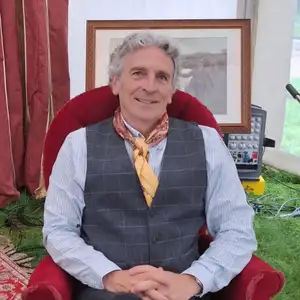The public narrative around COVID-19 is dominated by STEM issues, as we all become experts in epidemiology, virology and related disciplines. While research and expertise in these areas is vital, social sciences, humanities and the arts (SHAPE) are playing an equally fundamental role in changing behaviours to reduce transmission rates, identifying and protecting the most vulnerable, and understanding how to rebuild economies and provide financial support to those impacted by lockdown restrictions.
Central to SAGE decision making is SPI-B, which advises Government from a behavioural sciences point of view on a variety of issues, including the reopening of large events and venues, phased changes in activity restrictions, and insights into self-isolation. Supporting this work, LSE has been funding priority social science research which is helping to shape the response to COVID-19. We have gathered this research into a single online resource to make it accessible to policy-makers.
Building and strengthening social mobility and social justice is a priority for all the UK’s main political parties, especially in the shadow of the pandemic. The Conservatives are focused on levelling up and reducing regional disparities, while the SNP are campaigning for more social security support. The Lib Dems are calling for more support for carers, while Kier Starmer used his first speech as Labour leader to highlight the vital role of communities in supporting people through the pandemic. Social sciences are central to achieving all of these ambitions.
In Parliament, select committees are scrutinising Government policies through a social sciences lens and LSE social sciences expertise is contributing to this work. The Women and Equalities Committee has explored the unequal impacts of COVID-19 for young people, women, people with disabilities and the BAME community. The Housing, Communities and Local Government Committee is looking into the impact of COVID-19 on homelessness, while LSE’s Dr Anna Valero has given evidence to the Business, Energy and Industrial Strategy Committee for their inquiry into post-pandemic economic growth, and the Treasury Committee for their inquiry into the economic impact of coronavirus.
The COVID-19 situation is moving quickly, and ongoing LSE research gives a rich and urgent picture of the economic and social effects of the virus, the lockdown, and of Government policies. LSE’s Centre for Economic Performance (CEP) has looked at the impact of the lockdown on those who are self-employed and found that the nature of domestic abuse has changed during lockdown. Professor Lucinda Platt, Head of the Social Policy Department, has analysed lockdown effects on BAME communities, while the Anthropology Department is exploring the importance of communities in care support. LSE academics are also working with businesses on the barriers people are facing in relation to returning to work, and examining lessons to be learnt from other countries.
Government, Parliament, regional and local governments can only make informed decisions with data-led, contemporary research. No nation will be able to respond to, tackle, and ultimately overcome a pandemic without the combined efforts of both STEM and SHAPE experts. The contributions of social sciences, supporting STEM disciplines, have helped to alter behaviours to reduce transmission rates and increase uptake in people getting tested, and they will soon be needed in efforts to help people get a vaccine.
The SHAPE campaign is highlighting the huge value of social sciences, humanities, and the arts – both as subjects to study and disciplines that are key to the global recovery. LSE continues to prioritise supporting efforts to improve lives and build an inclusive recovery that offers improved opportunities across the globe and UPEN has a vital role to play in continuing the ongoing dialogue between institutions moving forward.
Zoe Russell is Senior Public Affairs Officer at the London School of Economics and Political Science (LSE).


